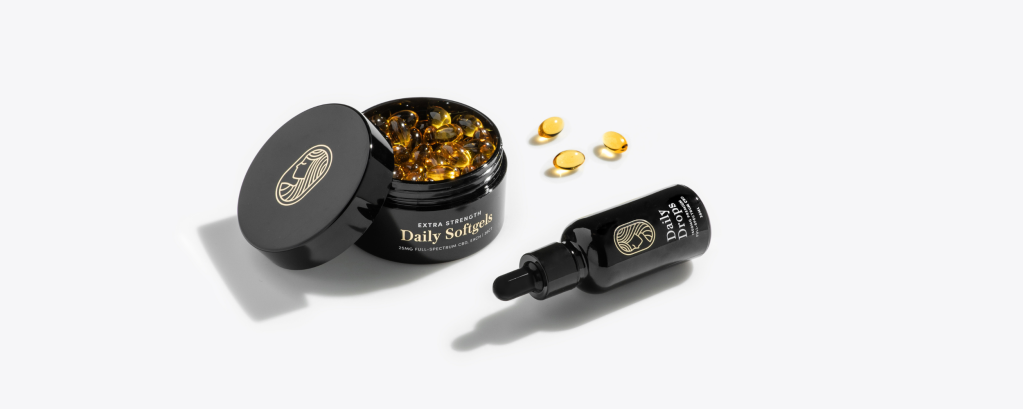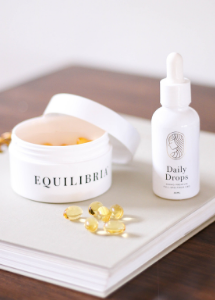CBD Tolerance: Here’s Why You Can’t Build Up A Resistance

As CBD use and popularity grows, the need for trusted, accessible, science-backed information is needed more than ever. A quick Google search about CBD can quickly lead you down a rabbit hole, leaving you with more questions than answers. One of the frequent questions our Member Education team hears is, “Will I build a tolerance to CBD?” At Equilibria, we’re passionate about breaking down the science and sharing our extensive wellness knowledge so you can be informed and empowered as you start experimenting with CBD.
CBD tolerance: Why you can’t build up a resistance
What is tolerance?
According to the National Institutes of Health, tolerance is when an individual no longer responds to a substance in the way they did initially. This results in needing to take a higher dose of the substance to get the same effect as when the individual first used it.
Essentially, tolerance means your body ‘gets used to’ the dose you are taking, and eventually you need to take even more to get the desired effect. Anecdotally, CBD users find that building a tolerance is not the case. Many times they actually end up lowering their dosage over time.
Basic overview of CBD and the ECS
 In order to better understand CBD tolerance, it’s important to first address how CBD works with the body. CBD engages with an incredible biological system called the Endocannabinoid System, or the ECS. This system helps to achieve balance throughout the body. The ECS is made up of receptors all over the body that influences and appropriately adjusts our physiological systems by reading and responding to signals from naturally created molecules in our bodies called endocannabinoids. When our bodies experience high levels of stress, stress hormones are released and deplete the body of naturally-occurring endocannabinoids.
In order to better understand CBD tolerance, it’s important to first address how CBD works with the body. CBD engages with an incredible biological system called the Endocannabinoid System, or the ECS. This system helps to achieve balance throughout the body. The ECS is made up of receptors all over the body that influences and appropriately adjusts our physiological systems by reading and responding to signals from naturally created molecules in our bodies called endocannabinoids. When our bodies experience high levels of stress, stress hormones are released and deplete the body of naturally-occurring endocannabinoids.
CBD is one of the several types of phytocannabinoids (plant-based molecules) known to organically occur in the cannabis plant. It actually mimics how our endocannabinoids interact with the body. This means that your body can’t really tell the difference between its own endocannabinoids and CBD. Therefore, CBD can communicate with the ECS to aid the body in naturally functioning as it’s intended.
What does research suggest about a CBD tolerance?
The World Health Organization (WHO) has declared CBD as a generally safe product. Their report reviewing several CBD studies concludes, “Across a number of controlled and open-label trials of the potential therapeutic effects of CBD, it is generally well-tolerated, with a good safety profile.” The report also notes, “No studies of the physical dependence potential of CBD in animals were identified.”
Many experts suggest that it’s unlikely to build a tolerance to the cannabinoid CBD. It’s actually possible to notice needing less CBD after continual use. This is referred to as reverse tolerance. They believe this to be true as CBD does not directly bind to the receptors in the ECS. Instead, CBD is involved in communicating on how to regulate various responses in the body.
Researchers speculate that CBD has the ability to either enhance or block (depending on what the body needs) the effects of other molecules or substances in our body. For instance, some research theorized that CBD may affect the chemicals in our body that trigger physiological responses. Some research also points to the idea that CBD might enhance our body’s production of our own endocannabinoids to help the ECS support itself again.
Research released within the last year conducted via animal studies shows positive indication of CBD’s potential to support certain long-term health conditions without concern for developing tolerance.
Does CBD work the same as THC?
Conversely to CBD, many studies have found that using marijuana, or cannabis containing more than .3% THC, can lead to developing a tolerance to the well-known molecule, THC. Scientists suspect that it works differently because THC binds directly to your receptors. In addition, repeated use of THC may desensitize your receptors so that you could require more to experience the same effects.
CBD and THC interact very differently with the receptors in the ECS, which seems to be one of the reasons why our bodies respond so distinctively to each molecule. This is also why you likely won’t develop a tolerance to CBD.
Your body, your dose
 Research findings point to the unlikelihood of dependence on CBD and promising benefits for health and wellness. Although the data indicates encouraging results from using CBD, it’s undeniable that we need more research to better understand the ins and outs of the hemp plant.
Research findings point to the unlikelihood of dependence on CBD and promising benefits for health and wellness. Although the data indicates encouraging results from using CBD, it’s undeniable that we need more research to better understand the ins and outs of the hemp plant.
At Equilibria, many of our members report lowering their dosage after sticking with a long-term routine. It’s possible that as the Endocannabinoid System is reaching homeostasis and the body has built up a storage of endocannabinoids. This results in not needing as much to support maintaining balance.
Just like your fingerprints, your dosage can be unique to you. You may find a routine or dose works well for a while but then as your body and life changes, you find your dosage needs to change as well. Your personalized dosage can vary depending on stressors, lifestyle adjustments, metabolism, and several other factors. If you’ve been on a CBD routine for some time and are noticing your dosage isn’t working as well as it did before, you might discover that taking a lower dose does the trick.
Feel like your dosage isn’t working for you? Reach out to us! We’re here to help! Contact us at wellness@myeq.com or schedule a 1:1 Wellness Consultation over the phone here to get in touch with one of our Certified Wellness Coaches to chat about finding a routine that could work better for you
Sources: